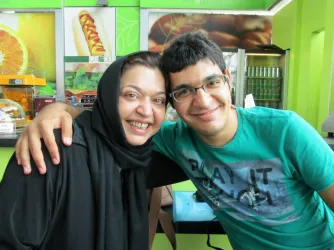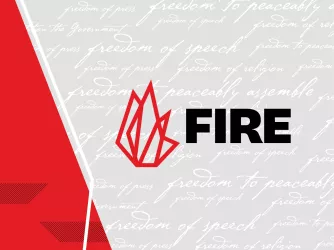Table of Contents
The Search for Truth—So Long As It Doesn’t Offend <em>My</em> Sensibilities!
Last Friday’s edition of Inside Higher Ed details a controversy regarding a Ph.D. defense at Ohio State. It seems a student named Bryan Leonard was scheduled to defend a dissertation on how students react to being taught intelligent design along with (not in place of) Darwin’s theory of evolution. The defense is off at the moment, though, in part because OSU’s rules may have been broken. The blog Panda’s Thumb is all over that issue, and at first glance the complaints seem reasonable: apparently there is no one who specializes in science education on the committee, but there are two known supporters of the intelligent design movement.
But according to Inside Higher Ed, there is another reason people at OSU are upset: “that Ohio State appeared to be on the verge of awarding a Ph.D. for work questioning evolution.”
I have no reason to think Inside Higher Ed’s reporting is wrong here, but I hope it is, because that argument is ridiculous. First, to my knowledge at least, Leonard’s Ph.D. is not actually on evolution or intelligent design or anything else. It’s about pedagogy, period. Its concern is not scientific analysis of which theory on the origins of the universe is right, but rather how teaching about the controversy itself affects students’ attitudes. So they’re not really objecting to a dissertation that “question[s] evolution” in any meaningful sense, but rather one by a person who does. By this line of logic, universities don’t have to give degrees to people who hold views (however unrelated to the degree in question) that those in power don’t like. Imagine a communist student, or an anarchist, or an evangelical, or an atheist being denied a graduate degree on the grounds that some hostile professors thought it would “legitimize” such a worldview.
More importantly, though, even if Leonard’s thesis did question evolution, what would be the problem? Shouldn’t the dissertation be judged on its reasoning and analysis, not its point of view? Ideas and theories are made to be questioned—mine certainly were in college, and I am stronger today because of it. The purpose of the academy (theoretically) is the search for truth, and Leonard thinks he has found it in intelligent design, just as most others think Darwin found it in evolution. Such disagreements are what it’s all about—they are positive steps toward finding the truth, not problems to be squelched. Certainly, it was good for mankind that Galileo took the then-unpopular position that the earth revolves around the sun and that abolitionists took the then-unpopular position that African Americans are people, not property. Yet some people at OSU don’t think a thesis can even be discussed because it studied (not even praised, but studied) a topic they’ve ruled “out of bounds” and was written by someone known for holding views they regard as wrongheaded.
No matter what one thinks about evolution or intelligent design—I, for one, know little more about the debate than is in this post—it is silly that in today’s academy some perfectly fallible ideas are taken as articles of faith. Evolution may well be the absolute truth—I don’t claim to know. But why is it not open to question and debate? At a secular university, nothing ought to be sacrosanct—not diversity, not evolution, and not even God. As Alan often says on campuses, religious students are often asked to bear any number of indignities and insults to their faith in the name of freedom—as is proper. If their deepest ideas can be questioned (and even denigrated) in such a way, why can’t the theory of evolution, too?
As Greg always says, it’s easy to say one loves free speech—but the true test of that love comes when one is confronted with speech one truly abhors. Those who are principled defend the rights of even the unworthiest people. The same is true with the search for truth: the real test of whether you are committed to it comes when your most basic beliefs are questioned. Bryan Leonard, rightly or wrongly, is questioning such beliefs at OSU. His defense committee ought to be made up of knowledgable people, which it doesn’t appear to be right now, but he should have one, regardless of whom his views offend.
Recent Articles
Get the latest free speech news and analysis from FIRE.

FIRE sues Bondi, Noem for censoring Facebook group and app reporting ICE activity

Iran replaced my mother’s voice with silence

Spain considers banning teens from social media and holding tech executives criminally responsible for ‘hate speech’
